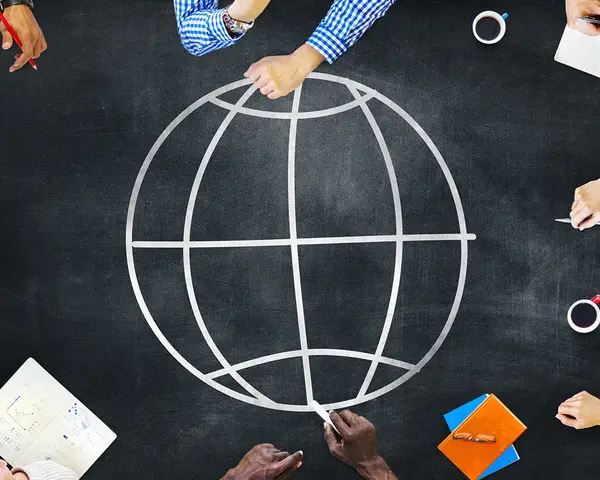
This International Literacy Day marks ten years since we launched Early Reading: Igniting Education for All at a standing room only event at the Brookings Institution in Washington DC. The report presented the work of the nascent Early Grade Learning Community of Practice, comprised of more than 40 organizations working to develop and deploy assessment tools, pilot and scale interventions, and share best practices. The report began by asking readers to imagine the experience of a child sitting in a classroom year after year, struggling to read, and concluded with recommendations to improve reading instruction and outcomes by focusing on the 5Ts: Test, Teach, Tongue, Text, Time.
As a research institute, RTI uses evidence-based approaches to strengthen policy, management, and practice in the countries where we work, with each context presenting unique challenges and opportunities based on their conditions. Worldwide school closures stemming from COVID-19 have deepened these challenges, while also providing opportunities to rethink how we deliver teaching and learning under a completely new set of conditions. A decade later, what have we learned about each of the 5Ts?
Test: Assessments can be a lever for change.
Traditionally, national examinations, international large-scale assessments like PISA or regional assessments like SACMEQ were the only way to measure learning outcomes, but the process was expensive and the results took too long to be actionable. In 2006, USAID charged RTI with creating a simple, valid and reliable tool for measuring reading performance in the early grades. Drawing from existing research and approaches, an international panel of experts proposed a series of timed and untimed tasks that were predictive of later reading skills and whose results could be used to inform classroom instruction and ultimately spur learning improvement.
It worked! To date, the Early Grade Reading Assessment (EGRA) has been conducted in at least 75 countries and 120 languages; many of these can be found on USAID’s Early Grade Reading Barometer. More than two million of these assessments have been conducted using Tangerine, an open source digital data collection platform developed by RTI. National governments and international organizations, including USAID, DFID and the World Bank, have used EGRA results to justify increased investments to strengthen the critical foundations of early learning. And in 2015 the Sustainable Development Goals called on all countries to report on the percentage of grade 2 or 3 students reaching minimum proficiency in reading and mathematics. The shift in focus from access to learning was already underway when EGRA was first piloted, but the increased availability of evidence of early learning gaps helped to nudge the global community to recognize and respond to the learning crisis.
Teach: Supporting teachers is key to learning improvement.
Every day, millions of teachers around the world help children to learn, frequently under difficult conditions. We help governments support teachers to deliver high quality instruction through ongoing coaching and professional development and easy-to-use instructional guides. We continually scour the evidence base and reflect on our project experience to understand what works to improve early reading instruction. Our synthesis of lessons learned from developing teacher materials in 19 projects in 13 countries found that structured teachers’ guides contribute to improved learning outcomes and do not, as some argued, turn teachers into robots. We have also documented how RTI and others provide high-quality professional development and coaching at scale to ensure that training transfers change into practice, as well as which methods are most cost-effective. Importantly, we’ve learned that effective teacher support goes beyond isolated training events and is a sustained effort on multiple fronts. The impact each teacher makes on a child’s life is huge. It is up to school and system leaders to ensure that every teacher has the resources, resolve and incentives to succeed.
Tongue: Teaching a child to read in a language they speak and understand works best, except when it doesn’t.
At its most basic, the reading process relies on both knowledge of the meaning of words (language comprehension) and the ability to decode words (converting the letters on a page into sounds). On the first day of school, children bring with them thousands of words from their first or home languages—their oral vocabulary. It makes sense to build on this foundation to teach them to read. But what if the teacher does not speak the language of the child, because perhaps the region where the child lives is home to dozens of languages, or books are not available in the child’s language? These and other considerations must inform decision making when selecting a language of teaching and learning. In the last decade, RTI has supported governments to develop materials and train teachers in dozens of countries—each with its own approach to language policy and selection. In Nigeria, the Hausa materials developed under a research trial were later scaled up and adopted for use in Bauchi and Sokoto states. In Uganda, we supported the national curriculum body to develop materials and roll them out in 12 local languages and English, showing meaningful impacts in 9 of those 12 languages. And in the Philippines, we have used research results to help inform implementation of the national mother-tongue based multi-lingual education program. Based on these and other experiences we have published research and developed guidance to inform decisions on language policy. These experiences have taught us that mother tongue multi-lingual education programs are more successful when backed by adequate resources, political will and excellent implementation at all levels—conditions which are challenging to come by in many contexts. We are continually learning, and every context presents new challenges and opportunities.
Text: There are simply not enough quality teaching and learning materials.
Books are a necessary, although not sufficient, condition for learning to read—children everywhere need a diverse and multi-leveled range of texts to support their reading development. RTI’s survey of early reading materials in 11 countries in Sub-Saharan Africa identified just 6,000 titles in some 200 languages. To put this in perspective, the American Library Association reports that the average elementary school library in the United States has 12,000 titles on its shelves. One of the key factors underlying this book gap is the complex and fraught book supply chain and production process, which includes multiple actors involved in each step from design and development to delivery to students and their teachers.
The Global Book Alliance, a coalition of donors and civil society organizations, is working to close the book gap by improving the book supply chain and supporting open access to thousands of titles in hundreds of languages through the Global Digital Library. RTI’s work has helped countries to lower the cost and increase the quality of the books they procure and publish; in Kenya this resulted in each student in the country having their own copy of the textbook in grades 1-3, where previously as many as six children would share a single book. In Ethiopia we helped to organize writers workshops to craft textbooks for eight grades in seven local languages. Our guidelines on producing and designing gender- and disability-inclusive early learning materials are informed by more than a decade of experience in supporting Ministries to develop, print and distribute more than 50 million books around the world—with many more millions to come.
Time: None of the above really matters if teachers and students are not in school.
Instructional time –when teachers and students are actively engaged together in the teaching and learning process—is precious, and every minute counts. RTI has used simple observation tools to help school system leaders from the West Bank to the Philippines understand how classroom time is used and address barriers to teacher and student attendance. We have supported governments in their efforts to increase time on task by applying social behavior change models, improving teacher support and coaching, reducing school- and gender-based violence, developing communications campaigns to help families support learning both inside and outside the home. With COVID-19 forcing school closures around the world we have helped Ministries rapidly pivot to online and distance learning, taking into account the social and emotional toll the prolonged closure will have on both teachers and students. In Cambodia we worked with the Ministry to digitize early reading books and distribute guides to parents online. We helped the Ministries of Education of both Malawi and Tanzania shift to virtual support for teachers using WhatsApp messaging. And in the Philippines and Liberia we are supporting radio and TV programming, interactive digital learning materials and a platform for distribution to deliver content to the millions of children shut out of school. We are also estimating the toll the pandemic is likely to have on learning loss, to help governments prepare for when students return.
Learning Forward
As a learning organization, RTI continually works to learn from and contribute to the evidence base through formal research, project documents, commentary and communication.
In the last decade, we have also embarked on improving our approaches in areas beyond reading, including strengthening mathematics instruction and assessment, early childhood development, gender and disability inclusion, and meeting the needs of refugee children. With just ten years to go to achieve the Sustainable Development Goal of ensuring “that all girls and boys complete free, equitable and quality primary and secondary education leading to relevant and effective learning outcomes” we have a lot of work ahead of us.

Learn More
Follow our progress as we work toward the Sustainable Development Goal of ensuring "that all girls and boys complete free, equitable and quality primary and secondary education leading to relevant and effective learning outcomes."
